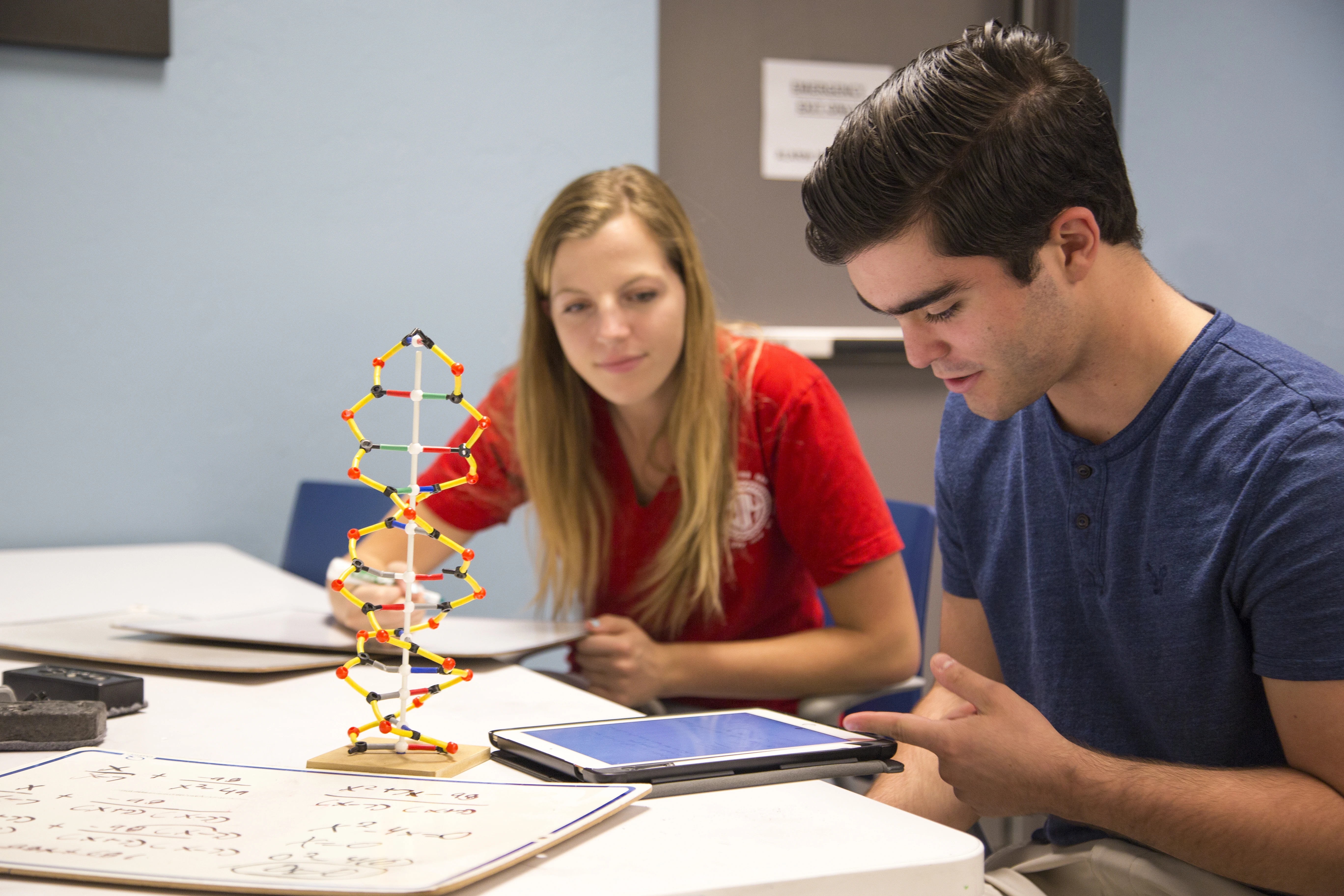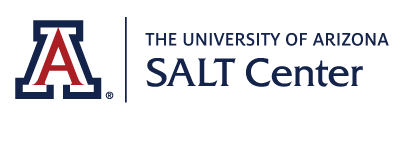PASSING THE TORCH: A TUTORING PROGRAM LEAD BY THOSE WHO'VE BEEN THERE

SARAH KIRSHBAUM
Learning Support Services, Coordinator
“Do I belong here? Am I smart enough? Am I prepared for college?” Imposter syndrome is real. The transition from high school to college is a scary one. Sometimes it feels overwhelming and hard to grasp. As a former SALT Center student myself, I remember looking at my new adventure and questioning if the long winding road was achievable and worth it. I remember being in classes where the professors spoke at the class instead of engaging us. I remember wondering if I was doing something wrong or if I was in the wrong place, until I found a community of support and understanding at the SALT Center. Understanding this mindset is foundational for our tutors in the SALT Center.
I train all the new tutors to understand the mindset and struggles that a lot of students with learning and attention challenges have. My tutor training focuses on engagement strategies that support our students to build skills in self-advocacy. This means the tutors support the students in learning what they need to be successful and how to express these needs in a way that will help them achieve their goals independently of the tutor. The most common form of teaching that we experience is lecture. I noticed through observation that this led to our tutors defaulting to lecturing our students. Our students do not need another lecture. Our tutors are taught to instead focus on providing engagement opportunities for our students to express their knowledge. I consistently remind our tutors that they are not professors or a textbook; they are peer tutors. It is their job to engage our students in the content, incorporate learning strategies that the students can utilize when studying alone, and help our students build the confidence in their own skills and knowledge so that the students can study efficiently and effectively.
During my educational journey, I had tutors who spoke at me and I sat there and counted down the minutes. They did not listen or care about my questions or needs. I do not want any of our students to experience this. They should leave a SALT Center tutoring session feeling confident about the learned content, a list of strategies or techniques that they can implement on their own, and an academic plan for next steps. Our sessions should be a collaborative effort of knowledge exchange, not a knowledge dump from tutor to student.
Aria Spaulding, a former student in the program and a Lead Tutor shared here experience saying, “The SALT Center tutoring gave me a strong foundation, not only in academics and professional skills but also in my confidence and independence.” As a peer tutor and student, Aria was able to empathize with her students by creating a collaborative session that focused on growth rather than just support.
A priority of training quality tutors is an involved and engaging training program. During my time at the SALT Center, I have developed the Lead Tutor Program. I have designed this program to provide consistent and personalized feedback to our 100+ tutors. I work with 13 lead tutors who each have a team of 7 new tutors. I had the privilege of watching Aria grow professionally through her time as a SALT Center student and Lead Tutor. As a Lead Tutor she had the opportunity to take more responsibility by mentoring our new tutors and shaping the program’s tutoring practices.
Aria expressed, “I absolutely loved being a Lead Tutor as my professional skills improved tremendously. This role taught me leadership, organization, and teamwork skills, while also pushing me to think critically about how different students learn best.” This program focuses on encouraging our tutors to grow by reflecting on their own skills and observing others. Through bi-weekly mentor meetings, our tutors create goals that help them become stronger tutors who focus on engagement and long-term retention rather than just assignment completion.
Lately, we have seen a rise in Artificial Intelligence (AI) usage leading to a reliance and learned dependance. AI can be a useful tool when used correctly however it cannot replace learning all together. Aria said, “While AI can be a helpful tool for brainstorming, creating quick study guides, or rephrasing class material, it lacks the personal connection and tailored guidance that tutoring provides. Tutoring gives students a safe space to ask questions, make mistakes, and receive feedback on material that is specific to their class studies— something AI cannot do.”
This personal connection is the point! Tutoring should provide opportunities for students to express their knowledge and challenge their understanding of the content. She continues, “Students also gain confidence and accountability from working with a tutor, which are essential skills for success both in and outside of the classroom.”
The SALT Center’s goal for all the services we provide is that the students leave our program with a strong sense of self. This confidence will transfer to success in their future goals and career. Understanding what one needs to succeed and being able to express those needs is essential and we at the SALT Center are excited to support this journey towards professional and personal success.

Table of Contents
WELCOME FROM THE BARTLETT FAMILY EXECUTIVE DIRECTOR
SUPPORTING THE JOURNEY OF EVERYDAY SELF-ADVOCACY
COURAGE AND COMMITMENT: MEET THE 2025 MICHELLE COMBS AWARD WINNERS
PASSING THE TORCH: A TUTORING PROGRAM LEAD BY THOSE WHO'VE BEEN THERE
EXPLORING EDUCATIONAL TECHNOLOGY WITH MARY BETH EUSTICE
MARI WHITE: 2025 DAVID LIVINGSTON WHITE AWARD WINNER
PUSHING FORWARD: GABBY’S JOURNEY ON AND OFF THE FIELD
CELEBRATING THE CLASS OF 2025: PHOTOS FROM OUR SPRING GRADUATION RECEPTION

